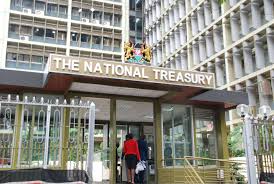
Accounting officers and heads of procurement in government have until June 30 to comply with the new electronic government procurement system or lose powers to their compliant peers.
This is a directive by the Public Procurement Regulatory Authority (PPRA), which is pushing for compliance in the integration of the public procurement information portal with the electronic government procurement system, which becomes fully operational from July 1.
All government entities must ensure they register their entities with the new system, PPRA said.
It follows Treasury Cabinet Secretary John Mbadi's budget day announcement that the new system will be rolled out on July 1, with the shift to e-procurement meant to improve governance in the public procurement process.
“I launched the e-procurement system in April 2025 and beginning 1st July 2025, all procurement by Ministries, Departments and Agencies will be done through the e-procurement system. This will reduce the opaqueness and save government resources estimated at 10 per cent of procurable budgets,” Mbadi said.
PPRA has since issued a circular to all accountants across both the national government entities, including the National Assembly, the Senate and county governments, public schools, among others, to comply with the new rule.
“The authority shall pursuant to Section 52 of the Act, transfer procuring responsibility of procuring entities not registered on the E-GPS by 30th June 2025 to other compliant entities,” Director General Patrick Wanjuki said in the circular.
The move, Wanjuki said, will eliminate the need for procuring entities to upload information on the authority’s Public Procurement Information Portal, since the required reports will automatically be generated and submitted through the E-GPS.
“The authority will continue to publish all procurement-related information that is necessary for the public through the Portal,” he said.
Procurement function staff and users, including those overseeing asset disposal, are required to participate in the ongoing training programme for E-GPS users organized by the National Treasury.
More than 400 e-Government procurement system end-users, comprising Public Finance Management staff and suppliers from both the National and County Governments, have so far been trained in readiness for full rollout in July 2025.
Mbadi last week said the ministry has also developed the Public Procurement and Asset Disposal (Amendment) Bill, 2024, which is currently in Parliament for enactment, as part of the public procurement reforms.
The Bill seeks to enhance transparency and accountability; strengthen the role of the regulator to enforce standards, compliance and sanctions for non-compliant procuring entities; promote the use of local content and align with international best practices.
Procurement fraud in Kenya has previously been cited as a major problem, with billions of shillings lost annually due to corrupt practices within public procurement.
These practices involve misuse of public funds, bribery, bid-rigging and other fraudulent activities.










